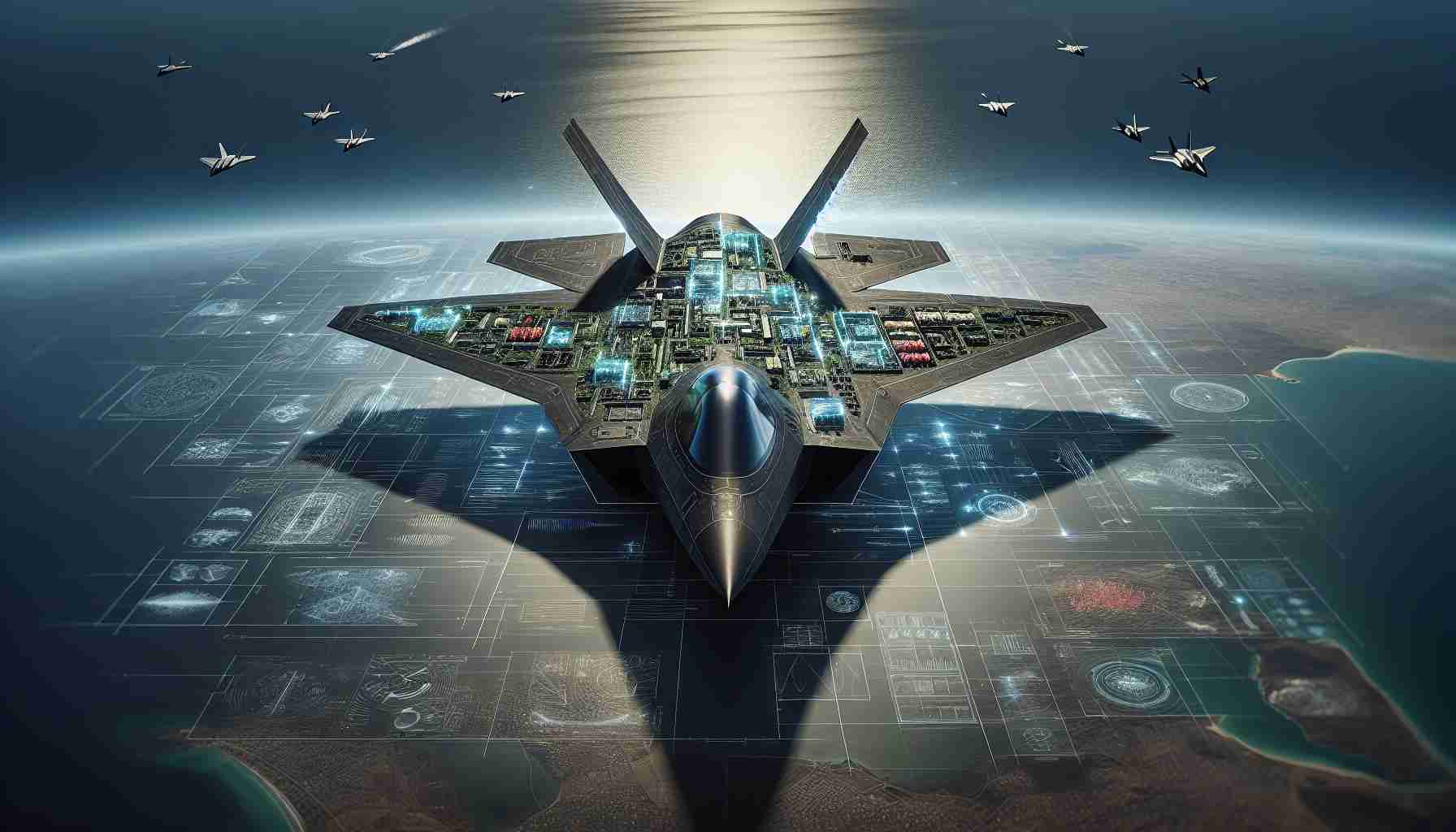China’s Stealth Fighter Challenges: While striving to match the U.S. F-35, China is stumbling over material science obstacles, particularly in crafting advanced Radar Absorbent Material (RAM). This critical component significantly affects a stealth fighter’s ability to elude radar detection.
The Elusive Art of RAM: Former U.S. Navy Operations Specialist, Eric Wicklund, has discussed the formidable barriers facing China in producing effective RAM. He explains that while replicating the stealthy exterior of the F-35 is feasible, mastering the internal RAM technology is akin to trying to recreate legendary Damascus steel without understanding its ancient forging secrets. Despite efforts, Chinese stealth fighters remain vulnerable to radar detection.
Compared to the F-35, which boasts cutting-edge avionics, sensor fusion, and electronic warfare prowess, Chinese fighters lag behind. Wicklund underscores that until China overcomes the RAM challenge, their aircraft won’t rival the situational awareness and integrated capabilities of the F-35.
Reflecting on previous struggles with jet engine technology, Wicklund notes that China recently succeeded in developing a domestic jet engine after years of intensive research into the materials required. The hurdle with RAM is similar, demanding continued advances in material science before achieving parity with U.S. aircraft.
The Unmatched F-35: The U.S. leads a league of its own when it comes to producing state-of-the-art fighters like the F-35. Prioritizing stealth and networked functionalities, it benefits from sophisticated systems that provide unparalleled situational awareness. As a result, the F-35 solidifies its status as a formidable aerial force on the global stage.
Unseen Battles: The Global Race for Stealth Superiority
The pursuit of stealth capabilities in modern fighter jets has become a multi-polar, high-stakes competition where nations vie for technological supremacy. While much has been said about China’s struggle with Radar Absorbent Material (RAM) technologies, there’s a burgeoning spotlight on other nations quietly advancing their stealth programs, and the intrigues involved are captivating.
The Stealth Game Beyond China and the U.S.
While China and the U.S. dominate headlines, nations like Russia, India, and even emerging players in Europe are making strides in stealth technology. Russia’s Su-57, for instance, despite facing setbacks, is progressively refining its stealth features, attracting interest from countries like Turkey and India. Moreover, India’s AMCA project signifies its ambition to enter the exclusive club of stealth-capable nations, reflecting a broader geopolitical shift.
Impact on Geopolitics and National Security
Stealth technology is more than engineering; it embodies a country’s military and geopolitical clout. For instance, nations equipped with stealth fighters possess enhanced first-strike capability, potentially rewiring regional power dynamics. This can lead to shifts in alliances or incite arms races, nudging geopolitical stability in unprecedented directions.
For communities, the local economies around aerospace manufacturing hubs thrive, thanks to jobs and technological innovation spillover, while defense contracts often support ancillary industries.
Controversies and Ethical Questions
The race for stealth poses ethical questions about military expenditure’s opportunity costs. Critics argue that billions spent on stealth technology could address pressing global issues like poverty and climate change. Yet, advocates insist that military advancements are indispensable for maintaining peace and security.
One particularly intriguing controversy involves industrial espionage. Speculation abounds over how countries acquire stealth technologies, with espionage allegations occasionally surfacing, adding a layer of intrigue and prompting international diplomatic tensions.
Advantages and Disadvantages of Stealth Technology
Advantages:
Stealth technology provides a tactical edge, reducing aircraft visibility to enemy radar. It enhances national security by permitting discreet surveillance and strategic strikes, underscoring power projection without adversarial detection.
Disadvantages:
The cost of developing and maintaining stealth technology is enormous. High investment in defense often diverts resources from crucial social sectors. Furthermore, stealth fighters can become obsolete quickly as countermeasures evolve, necessitating continuous investment.
Frequently Asked Questions
How does stealth technology impact civilian life?
While directly, stealth technology doesn’t impact daily life, the economic activities surrounding its development can boost local economies and employment.
Can non-state actors like terrorists acquire stealth technology?
It’s highly unlikely due to the complexities and costs involved, but the proliferation of counter-stealth technologies remains a concern for state security agencies.
What is the future of stealth technology?
The future hints at more advanced materials, integration with AI, and improved combat systems, making stealth aircraft more efficient and possibly autonomous.
For further insights into global defense technologies and innovations, visit Janes.
In conclusion, while China’s challenges with RAM highlight a specific facet of the broader stealth narrative, the global competition introduces a diverse array of stories that continue to shape the balance of power across continents. The intricate dance of innovation, security, and diplomacy will likely intensify as technology advances.







